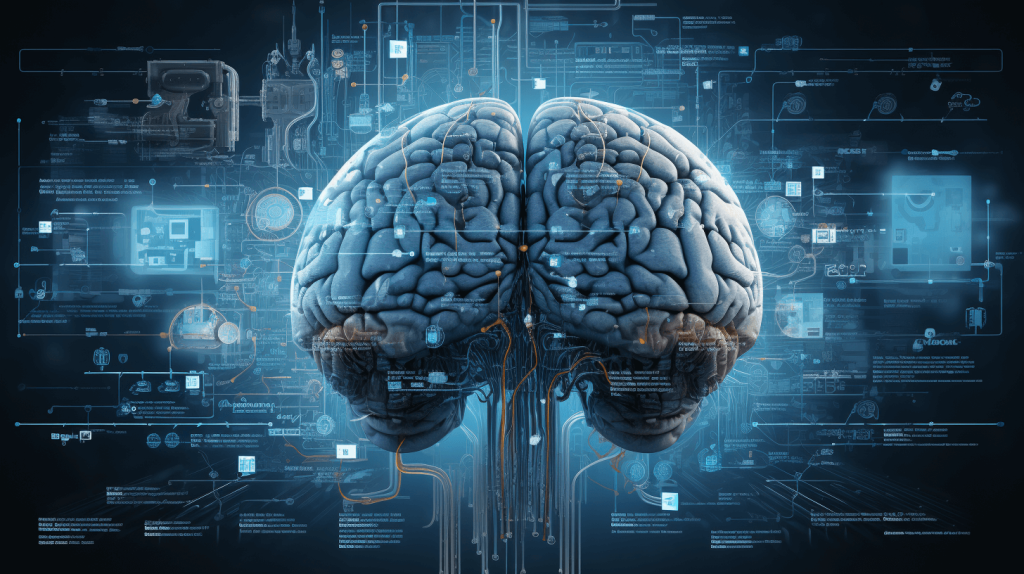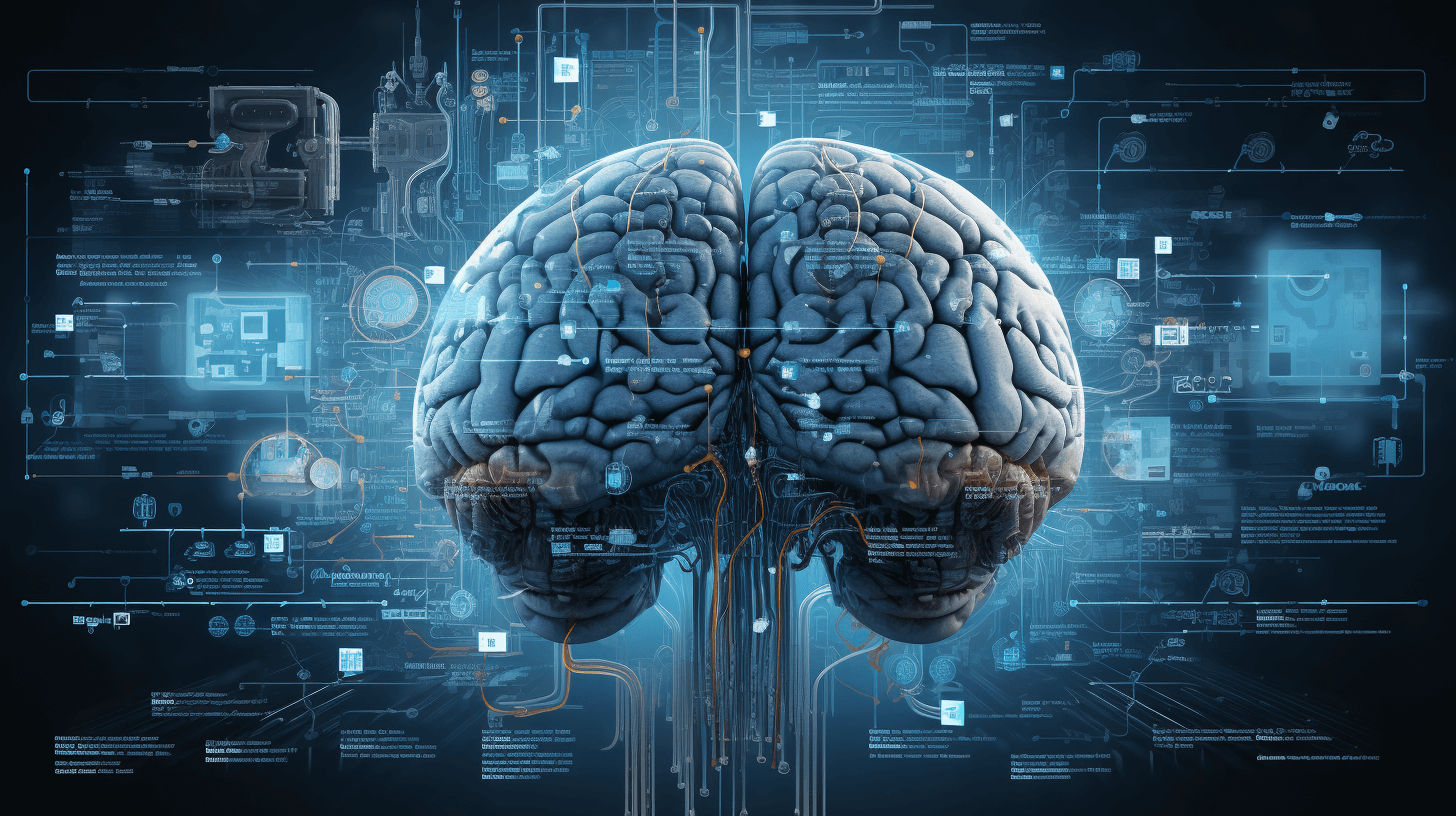What are psychobiotic supplements?
Psychobiotics are probiotics and prebiotics that can deliver mental health and cognitive benefits through the gut-brain axis. Researchers are still understanding all the ways that gut bacteria can influence your mind, here are some ways by which gut bacteria and probiotics do so:
- Producing neurotransmitters – neurotransmitters in the gut may not directly increase neurotransmitters in your brain, but they can work through your gut neurons to influence your brain functions.
- Producing other brain-influencing substances, such as short-chain fatty acids and neurotransmitter metabolites.
- Communicating with your brain through the vagus nerve.
- Balancing inflammation and oxidative stress levels in your entire body. Inflammation and oxidative stress can interfere with your brain function, causing sluggish brain and bad mood.
Many herbs also work with gut flora to activate certain substances, or work by improving the gut flora, such as the Chaihu Shugan San formula in our Cognibiotics.
Keep in mind most of these psychobiotic studies are in rodents. In most cases, to reap the same benefits, you’d need to pick probiotic formulations that are optimized to survive your digestion rather than ones that just have these strains.
Dosages should be in the billions to ten billions. However, spore-based bacteria or some preparations are made to survive digestive conditions and deliver benefits at a lower dose.
The results also likely vary from person to person, as a meta-analysis of clinical trials for mood-enhancing effects of probiotics showed significant but likely heterogeneous.
This is why we formulated Cognibiotics with the most powerful psychobiotic strains and cognitive-enhancing Chinese herbs that synergize with probiotics.

How do probiotics for mental health work?
Supporting Healthy Stress Response (HPA Axis)
In rodents, supplementation with these strains reduced cortisol and mitigated some stress-related symptoms:
- L. plantarum
- L. helveticus
- L. fermentum
- L. rhamnosus
- L. casei
B. longum 1714 – A randomized, double-blinded placebo-controlled trial tested 40 subjects on B. longum 1714 vs placebo for 4 weeks. All subjects played the Cyberball game to simulate social stress.
Magnetoencephalography (a magnet non-invasive brainwave measurement) found that the probiotic group had increased theta brain wave in the frontal and cingulate cortex, and lower beta brainwave in the hippocampus, fusiform, and temporal cortex.
These changes are associated with subjective vitality and reduced mental fatigue.
In another clinical trial, 22 subjects completed cognitive assessments with EEG brainwave measurements after a cold pressor test, either after taking 109 (1 billion) CFU B. longum 1417 or a placebo.
The probiotic groups had less cortisol increase and subjective situational anxiety response along with reduced stress and improved memory.
L. plantarum PS128 reduced inflammation and corticosterone levels, while increasing dopamine, thus reducing traits resembling mood issues in mice.
Improving Neurotransmitter Balance
- L. plantarum, L. helveticus, L. fermentum, L. rhamnosus, and B. infantis change animal behaviors partly by influencing levels of neurotransmitters serotonin, dopamine, and GABA in the brain. These good bacteria also crowd out the bad bacteria and reduce the enzymes that may convert healthy neurotransmitters into neurotoxic metabolites.
- Bifidobacterium breve CCFM1025 upregulates tryptophan, 5-HTP, and serotonin in the gut.

Producing Neurotransmitters in the Gut
Many probiotics produce neurotransmitters. However, neurotransmitters and similar molecules in the gut may not increase neurotransmitters in the brain.
Most neurotransmitters are too large to cross the blood-brain barrier, therefore neurotransmitters in the brain are produced and maintained separately from those in the gut.
While taking GABA orally doesn’t increase brain GABA, most people will find relaxation effects. Oral GABA helps you feel relaxed through GABA receptors in your gut, and presumably, GABA produced by your gut bacteria works similarly
Here, we’re only including probiotic strains that are generally recognized as safe and available in dietary supplements. Neurotransmitter production is based on high-performance liquid chromatography detection.
| Probiotics | Acetylcholine | GABA | Dopamine | Norepinephrine |
| Bifidobacterium longum BL21 | ✖ | ✓ | ✓ | ✓ |
| Lactobacillus plantarum CW006 | ✓ | ✓ | ✖ | ✓ |
| Lactobacillus plantarum N13 | ✓ | ✓ | ✓ | ✓ |
| Pediococcus acidilactici | ✓ | ✓ | ✖ | ✖ |
| Lactobacillus pantarum Lp90 | ✓ | ✓ | ✓ | ✓ |
| Lactobacillus brevis LB01 | ✓ | ✓ | ✓ | ✓ |
| Lactobacillus paracasei LC86 | ✓ | ✓ | ✓ | ✖ |
| Lactobacillus helveticus LH76 | ✖ | ✓ | ✖ | ✖ |
| Lactobacillus casei LC89 | ✖ | ✓ | ✓ | ✖ |
| Lactobacillus jensenii LJe52 | ✖ | ✓ | ✖ | ✖ |
| Lactobacillus rhamnosus LRa05 | ✓ | ✓ | ✖ | ✖ |
| Lactobacillus gasseri LG08 | ✓ | ✓ | ✓ | ✖ |
| Lactobacillus acidophilus LA85 | ✓ | ✓ | ✓ | ✖ |
| Lactobacillus reuteri LR08 | ✓ | ✓ | ✓ | ✖ |
| Lactobacillus salivarius | ✓ | ✓ | ✓ | ✖ |
| Lactobacillus bulgaricus | ✓ | ✓ | ✓ | ✓ |
| Lactococcus lactis subsp lactis | ✓ | ✓ | ✓ | ✖ |
| Bifidobacterium lactis | ✖ | ✓ | ✓ | ✖ |
| Bifidobacterium breve | ✓ | ✓ | ✓ | |
| Streptococcus thermophiles | ✓ | ✓ | ✖ | ✖ |
| Lactobacillus fermentum | ✖ | ✓ | ✓ | ✓ |
| Bifidobacterium bifidum | ✓ | ✓ | ✓ | ✓ |
| Bifidobacterium infantis | ✓ | ✓ | ✖ | ✖ |
| Leaky Gut Guardian (vanilla flavor) | ✓ | ✖ | ✓ | ✖ |
| Leaky Gut Guardian (chocolate flavor) | ✓ | ✖ | ✓ | ✖ |
| P3-OM | ✓ | ✓ | ✖ | ✓ |
| Cognibiotics | ✓ | ✓ | ✓ | ✖ |
Supporting Neurogenesis and Neuroplasticity With Prebiotics
Prebiotic fermentation by good bacteria produces short-chain fatty acids that can induce brain fertilizer proteins, such as BDNF. These can have potent cognitive, mood-enhancing, and anti-aging benefits for your brain.
In rats, gavaging (force-feeding) with prebiotics called fructooligosaccharides (FOS) and galactooligosaccharides (GOS), GOS increased markers of neuroplasticity and glutamate signaling in the hippocampus.
When the researchers applied the plasma of rats that had GOS to human nerve cells, the nerve cells produced more BDNF.
Protecting the Brain Against Oxidative Stress
L. acidophilus, B. lactis, and L. fermentum increase antioxidant enzymes and improve cognitive function in rats with elevated oxidative stress.
Our internal lab tests detected some antioxidant activities with P3-OM and probiotic strains in Cognibiotics.

Stimulating the Vagus Nerve
There have been multiple rodent studies that observe neurochemical changes in the brain after the animals eat probiotics. Cutting the vagus nerve effectively prevents these neurochemical changes from occurring.
Lactobacillus rhamnosus JB1 is one such bacteria strain that significantly stimulates the vagus nerve.
Conclusion:
Your gut flora can play powerful roles in your mindset, mental health, and cognitive functions so it’s important to feed them right. Also, consider adding research-backed psychobiotics like Cognibiotics to your mood and cognitive enhancement toolbox.
References:
- Bermúdez-Humarán, L. G., Salinas, E., Ortiz, G. G., Ramirez-Jirano, L. J., Morales, J. A. & Bitzer-Quintero, O. K. (2019). From Probiotics to Psychobiotics: Live Beneficial Bacteria Which Act on the Brain-Gut Axis. Nutrients, 11(4). https://doi.org/10.3390/nu11040890
- Kim, S.-H., Han, J., Seog, D.-H., Chung, J.-Y., Kim, N., Hong Park, Y. & Lee, S. K. (2005). Antidepressant effect of Chaihu-Shugan-San extract and its constituents in rat models of depression. Life Sciences, 76(11), 1297–1306.
- Zhu, H., Tian, P., Zhao, J., Zhang, H., Wang, G. & Chen, W. (2022). A psychobiotic approach for mental health: A systematic review and meta-analysis. Journal of Functional Foods, 91, 104999.
- Liu, Y. W. et al. Psychotropic effects of Lactobacillus plantarum PS128 in early life-stressed and naïve adult mice. Brain Res. 1631, 1–12 (2016).
- Bravo, J. A., Forsythe, P., Chew, M. V., Escaravage, E., Savignac, H. M., Dinan, T. G., Bienenstock, J. & Cryan, J. F. (2011). Ingestion of Lactobacillus strain regulates emotional behavior and central GABA receptor expression in a mouse via the vagus nerve. Proceedings of the National Academy of Sciences of the United States of America, 108(38), 16050–16055.
- Ohland, C. L., Kish, L., Bell, H., Thiesen, A., Hotte, N., Pankiv, E. & Madsen, K. L. (2013). Effects of Lactobacillus helveticus on murine behavior are dependent on diet and genotype and correlate with alterations in the gut microbiome. Psychoneuroendocrinology, 38(9), 1738–1747.
- Wang, T., Hu, X., Liang, S., Li, W., Wu, X., Wang, L. & Jin, F. (2015). Lactobacillus fermentum NS9 restores the antibiotic induced physiological and psychological abnormalities in rats. Beneficial Microbes, 6(5), 707–717
- Takada, M., Nishida, K., Kataoka-Kato, A., Gondo, Y., Ishikawa, H., Suda, K., Kawai, M., Hoshi, R., Watanabe, O., Igarashi, T., Kuwano, Y., Miyazaki, K. & Rokutan, K. (2016). Probiotic Lactobacillus casei strain Shirota relieves stress-associated symptoms by modulating the gut-brain interaction in human and animal models. Neurogastroenterology and Motility: The Official Journal of the European Gastrointestinal Motility Society, 28(7), 1027–1036.
- Wang, H., Braun, C., Murphy, E. F. & Enck, P. (2019). Bifidobacterium longum 1714TM Strain Modulates Brain Activity of Healthy Volunteers During Social Stress. The American Journal of Gastroenterology, 114(7), 1152–1162.
- Allen, A. P., Hutch, W., Borre, Y. E., Kennedy, P. J., Temko, A., Boylan, G., Murphy, E., Cryan, J. F., Dinan, T. G. & Clarke, G. (2016). Bifidobacterium longum 1714 as a translational psychobiotic: modulation of stress, electrophysiology and neurocognition in healthy volunteers. Translational Psychiatry, 6(11), e939.
- Yafei Liu, Haijian Yang, Chao Jiang, Chao Yang, A scalable fully implicit method with adaptive time stepping for unsteady compressible inviscid flows, Computers & Structures, Volume 176, 2016, Pages 1-12, ISSN 0045-7949.
- Ohland, C. L., Kish, L., Bell, H., Thiesen, A., Hotte, N., Pankiv, E. & Madsen, K. L. (2013). Effects of Lactobacillus helveticus on murine behavior are dependent on diet and genotype and correlate with alterations in the gut microbiome. Psychoneuroendocrinology, 38(9), 1738–1747.
- Wang, H., Lee, I.-S., Braun, C. & Enck, P. (2016). Effect of Probiotics on Central Nervous System Functions in Animals and Humans: A Systematic Review. Journal of Neurogastroenterology and Motility, 22(4), 589–605.
- Dehhaghi, M., Kazemi Shariat Panahi, H. & Guillemin, G. J. (2019). Microorganisms, Tryptophan Metabolism, and Kynurenine Pathway: A Complex Interconnected Loop Influencing Human Health Status. International Journal of Tryptophan Research: IJTR, 12, 1178646919852996.
- Chen, G., Zhou, S., Chen, Q., Liu, M., Dong, M., Hou, J. & Zhou, B. (2022). Tryptophan-5-HT pathway disorder was uncovered in the olfactory bulb of a depression mice model by metabolomic analysis. Frontiers in Molecular Neuroscience, 15, 965697.
- Boonstra, E., de Kleijn, R., Colzato, L. S., Alkemade, A., Forstmann, B. U., & Nieuwenhuis, S. (2015). Neurotransmitters as food supplements: the effects of GABA on brain and behavior. Frontiers in psychology, 6, 1520. https://doi.org/10.3389/fpsyg.2015.01520
- Heyck, M. & Ibarra, A. (2019). Microbiota and memory: A symbiotic therapy to counter cognitive decline? Brain Circulation, 5(3), 124–129.
- Savignac, H. M., Corona, G., Mills, H., Chen, L., Spencer, J. P. E., Tzortzis, G. & Burnet, P. W. J. (2013). Prebiotic feeding elevates central brain derived neurotrophic factor, N-methyl-D-aspartate receptor subunits and D-serine. Neurochemistry International, 63(8), 756–764.
- Davari, S., Talaei, S. A., Alaei, H. & Salami, M. (2013). Probiotics treatment improves diabetes-induced impairment of synaptic activity and cognitive function: behavioral and electrophysiological proofs for microbiome-gut-brain axis. Neuroscience, 240, 287–296.
- Perez-Burgos, A., Wang, B., Mao, Y.-K., Mistry, B., McVey Neufeld, K.-A., Bienenstock, J. & Kunze, W. (2013). Psychoactive bacteria Lactobacillus rhamnosus (JB-1) elicits rapid frequency facilitation in vagal afferents. American Journal of Physiology. Gastrointestinal and Liver Physiology, 304(2), G211–G220.
